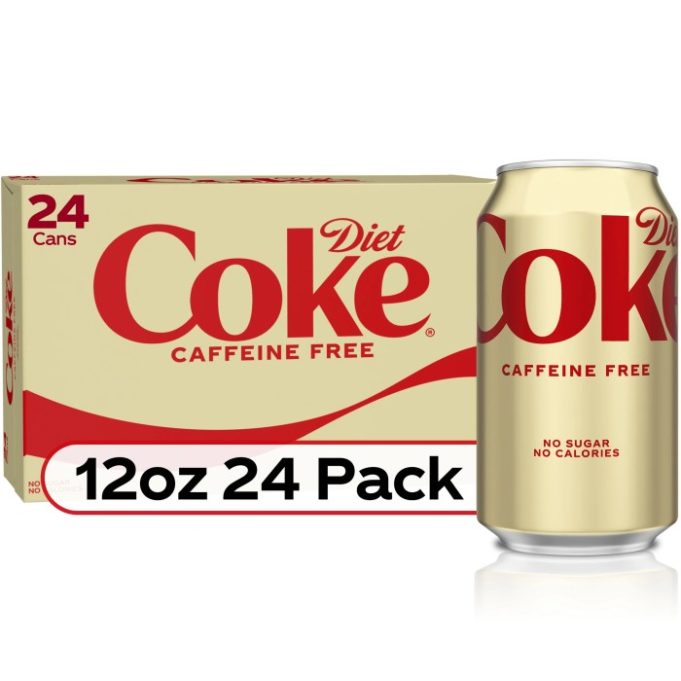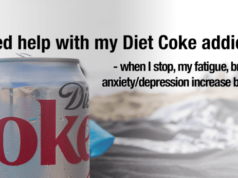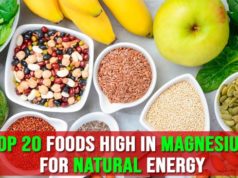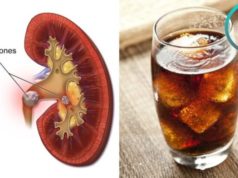Is Diet Coke caffeine free? This question often arises for those seeking a caffeine-free soda option. While Diet Coke boasts a zero-sugar formula, it does contain caffeine. This raises curiosity about its caffeine content, potential health implications, and alternatives for those seeking a truly caffeine-free beverage.
Understanding the ingredients of Diet Coke reveals that caffeine is a key component, contributing to its characteristic taste and stimulating effects. This article delves into the caffeine content of Diet Coke, compares it to other popular beverages, and explores the potential health impacts of its caffeine content. We’ll also explore caffeine-free alternatives, providing insights into their flavor profiles and nutritional benefits.
Diet Coke Ingredients
Diet Coke, a popular carbonated beverage, is known for its sweet, refreshing taste and its zero-calorie content. The absence of sugar is achieved through the use of artificial sweeteners, which are key components in the beverage’s formulation.
Ingredient List and Their Roles
Diet Coke’s ingredients contribute to its unique flavor and properties. Here is a breakdown of the ingredients and their roles:
- Carbonated Water: Forms the base of the beverage, providing the bubbly texture and refreshing sensation.
- Caramel Color: Adds the characteristic brown color to the drink, enhancing its visual appeal.
- Phosphoric Acid: Contributes to the tart and tangy flavor, balancing the sweetness of the artificial sweeteners.
- Aspartame and Acesulfame Potassium: Artificial sweeteners that provide sweetness without adding calories. Aspartame is about 180 times sweeter than sugar, while acesulfame potassium is about 200 times sweeter.
- Natural Flavors: These ingredients are responsible for the distinctive Diet Coke flavor, often derived from citrus fruits and other natural sources.
- Caffeine: A stimulant that provides a boost of energy and alertness. It is naturally found in coffee beans, tea leaves, and cocoa beans.
- Potassium Citrate: Acts as a buffer, helping to maintain the beverage’s pH balance and prevent spoilage.
Caffeine in Diet Coke
Caffeine is a naturally occurring stimulant found in various plants. Its chemical formula is C8H10N4O2.
Caffeine’s effects on the body include increased alertness, reduced fatigue, and improved cognitive function.
When consumed, caffeine is absorbed into the bloodstream and reaches the brain within 30 minutes. It blocks the action of adenosine, a neurotransmitter that promotes sleepiness. This blockage leads to increased levels of other neurotransmitters, such as dopamine and norepinephrine, which contribute to the stimulating effects of caffeine.
Caffeine Content in Diet Coke
Diet Coke, a popular sugar-free beverage, is known for its refreshing taste and bubbly texture. However, it also contains caffeine, a stimulant that can affect your body in various ways. Understanding the caffeine content in Diet Coke and its potential effects is essential for making informed choices about your beverage consumption.
Caffeine Content in Diet Coke
A standard 12-ounce can of Diet Coke contains 42 milligrams (mg) of caffeine. This amount is comparable to the caffeine content in other popular beverages.
Caffeine Content Comparison, Is diet coke caffeine free
- Regular Coke: A 12-ounce can of regular Coke contains 34 mg of caffeine.
- Coffee: The caffeine content in coffee varies greatly depending on the type of beans, brewing method, and serving size. A typical 8-ounce cup of brewed coffee contains about 80-100 mg of caffeine.
- Tea: Like coffee, the caffeine content in tea varies depending on the type of tea and brewing time. A standard 8-ounce cup of black tea contains about 40-50 mg of caffeine, while green tea contains about 25-35 mg.
Potential Health Implications of Caffeine Consumption
Caffeine can have both positive and negative effects on your health, depending on your individual sensitivity and consumption levels.
Effects on Sleep
Caffeine can interfere with sleep by blocking adenosine, a neurotransmitter that promotes sleepiness. Consuming caffeine close to bedtime can make it difficult to fall asleep and stay asleep.
Effects on Energy Levels
Caffeine is a stimulant that can temporarily increase alertness and energy levels. However, the effects of caffeine are short-lived, and after the initial boost, you may experience a crash in energy levels.
Effects on Heart Rate
Caffeine can increase your heart rate and blood pressure. While this effect is usually temporary, it can be problematic for people with pre-existing heart conditions.
Alternatives to Diet Coke for Caffeine-Free Options
If you enjoy the taste of Diet Coke but are looking for a caffeine-free alternative, there are several options available. These beverages are often similar in flavor profile and sweetness, but without the stimulating effects of caffeine.
Caffeine-Free Diet Coke
Coca-Cola offers a caffeine-free version of Diet Coke, which provides the same taste and sweetness without the caffeine. This option is ideal for those who enjoy the classic Diet Coke flavor but want to avoid caffeine. It is essentially the same as regular Diet Coke but without the caffeine.
Other Caffeine-Free Sodas
There are several other caffeine-free sodas on the market that offer a similar taste to Diet Coke. These include:
- Caffeine-Free Pepsi: This is a popular alternative to Diet Coke, offering a similar sweet and slightly citrusy flavor. It is also available in various flavors, such as cherry and vanilla.
- 7 Up: A classic lemon-lime soda, 7 Up is a refreshing and caffeine-free alternative to Diet Coke. It is known for its crisp and clean flavor.
- Sprite: This lemon-lime soda is another popular caffeine-free option. It has a slightly more tart flavor than 7 Up.
- Schweppes Ginger Ale: This ginger-flavored soda is a unique and refreshing alternative to Diet Coke. It has a slightly spicy and sweet flavor.
Other Non-Carbonated Beverages
If you are looking for a non-carbonated alternative to Diet Coke, there are several options available:
- Sparkling Water: Sparkling water is a healthy and refreshing option that is naturally caffeine-free. It is available in a variety of flavors, including fruit flavors and mineral-infused options.
- Unsweetened Tea: Unsweetened tea is a naturally caffeine-free beverage that is a good source of antioxidants. It can be enjoyed hot or cold and can be flavored with various herbs and spices.
- Fruit-Infused Water: This is a simple and refreshing beverage that is naturally caffeine-free. It can be made by adding fresh or frozen fruit to water.
Nutritional Content and Health Benefits
It’s important to note that while these beverages are caffeine-free, they may contain artificial sweeteners and other additives.
- Diet Coke and Caffeine-Free Diet Coke: Both beverages contain artificial sweeteners, such as aspartame, which some people may find to be unhealthy. However, they are calorie-free and do not contain sugar.
- Caffeine-Free Pepsi: Similar to Diet Coke, it also contains artificial sweeteners and is calorie-free. However, it may contain phosphoric acid, which can contribute to tooth enamel erosion.
- 7 Up and Sprite: These beverages are typically made with citric acid, which can contribute to tooth enamel erosion. They are also typically sweetened with high fructose corn syrup.
- Schweppes Ginger Ale: This beverage contains a small amount of sugar and is not calorie-free. It also contains artificial flavors and colors.
- Sparkling Water: Sparkling water is a healthy and refreshing option that is naturally caffeine-free and calorie-free. It is also a good source of electrolytes.
- Unsweetened Tea: Unsweetened tea is a healthy and refreshing option that is naturally caffeine-free and calorie-free. It is also a good source of antioxidants.
- Fruit-Infused Water: This is a simple and refreshing beverage that is naturally caffeine-free and calorie-free. It is also a good source of vitamins and minerals.
The Impact of Diet Coke on Health: Is Diet Coke Caffeine Free
Diet Coke, a popular sugar-free beverage, has sparked considerable debate regarding its potential health effects. While it offers a sugar-free alternative for those seeking to reduce their sugar intake, concerns remain about the long-term implications of its artificial sweeteners and caffeine content. This section delves into the potential health benefits and risks associated with consuming Diet Coke, exploring its impact on various aspects of health.
Impact of Caffeine on Health
Caffeine, a stimulant present in Diet Coke, can have both positive and negative effects on the body.
- Increased alertness and focus: Caffeine can enhance cognitive function by stimulating the central nervous system, leading to improved alertness, focus, and mental performance.
- Improved physical performance: Studies suggest that caffeine can enhance athletic performance by increasing endurance and reducing perceived exertion.
- Potential for anxiety and insomnia: Excessive caffeine consumption can lead to anxiety, restlessness, and difficulty sleeping, particularly in individuals sensitive to its effects.
- Possible dependence: Regular caffeine intake can lead to dependence, characterized by withdrawal symptoms such as headaches, fatigue, and irritability when caffeine consumption is reduced or stopped.
It’s important to consume caffeine in moderation, as excessive intake can lead to adverse health effects.
Impact of Artificial Sweeteners on Health
Diet Coke contains artificial sweeteners, such as aspartame, which are used to provide sweetness without adding sugar. While artificial sweeteners are generally considered safe for consumption in moderate amounts, their long-term health effects are still under investigation.
- Potential for metabolic disturbances: Some studies suggest that artificial sweeteners may disrupt the gut microbiome, potentially impacting metabolism and increasing the risk of weight gain and metabolic disorders like type 2 diabetes.
- Influence on appetite and cravings: Artificial sweeteners may trigger cravings for sweet foods, potentially leading to increased sugar intake and weight gain.
- Possible association with increased risk of certain cancers: While the evidence is still inconclusive, some studies have suggested a potential link between artificial sweeteners and an increased risk of certain types of cancer, but more research is needed to confirm this association.
It’s crucial to be mindful of the potential health implications of artificial sweeteners and to consume them in moderation as part of a balanced diet.
Diet Coke and Weight Management
Diet Coke is often marketed as a weight-loss aid due to its zero-calorie content. However, the evidence on its role in weight management is mixed.
- Potential for weight maintenance: Replacing sugary drinks with diet soda can contribute to calorie reduction, potentially aiding in weight maintenance.
- Influence on appetite and cravings: As mentioned earlier, artificial sweeteners may trigger cravings for sweet foods, potentially undermining weight management efforts.
- Possible association with increased risk of obesity: Some studies have suggested a potential link between diet soda consumption and an increased risk of obesity, but more research is needed to establish a causal relationship.
While diet soda can be a helpful tool for reducing calorie intake, it’s not a guaranteed solution for weight loss and should be consumed as part of a balanced diet and lifestyle.
Consumer Perception and Marketing Strategies
Consumer perception of caffeine-free beverages, particularly Diet Coke, is shaped by a complex interplay of factors, including health concerns, taste preferences, and marketing messages. Understanding these perceptions is crucial for beverage companies seeking to capitalize on the growing demand for caffeine-free options.
Marketing Strategies for Caffeine-Free Beverages
Beverage companies employ a variety of marketing strategies to promote caffeine-free options and target specific consumer segments. These strategies often focus on highlighting the benefits of caffeine-free consumption, such as promoting relaxation, sleep improvement, and reduced anxiety.
- Targeting Health-Conscious Consumers: Companies often emphasize the health benefits of caffeine-free beverages, particularly for individuals seeking to reduce their caffeine intake or manage health conditions like anxiety or insomnia. They may use health-related claims, such as “low-calorie” or “sugar-free,” to appeal to this segment.
- Appealing to Specific Lifestyles: Marketing campaigns often target specific lifestyles, such as those of pregnant women, athletes, or individuals with active social lives. For example, caffeine-free beverages may be positioned as a healthier alternative for pregnant women who are advised to limit their caffeine intake.
- Emphasizing Taste and Flavor: Companies recognize that taste is a primary driver of consumer choice. They invest heavily in developing innovative flavors and formulations to ensure their caffeine-free options are enjoyable and appealing to a broad range of consumers.
Influence of Advertising and Branding on Consumer Perception
Advertising and branding play a significant role in shaping consumer perceptions of caffeine-free beverages. Effective marketing campaigns can influence consumer choices by associating caffeine-free options with desirable qualities, such as health, wellness, and social acceptance.
“Consumers are more likely to choose a product they perceive as healthy, even if it’s not necessarily true.”
- Brand Image and Trust: Established brands with a strong reputation for quality and innovation can leverage their brand image to promote caffeine-free options. Consumers may be more likely to trust a brand they already know and associate with positive attributes.
- Celebrity Endorsements: Beverage companies often use celebrity endorsements to enhance the appeal of their caffeine-free products. Celebrities can influence consumer choices by associating their image and lifestyle with the brand.
- Social Media Marketing: Social media platforms provide beverage companies with a powerful tool for reaching target audiences and promoting caffeine-free options. Engaging content, influencer collaborations, and social media advertising can shape consumer perceptions and drive brand awareness.
Ultimate Conclusion
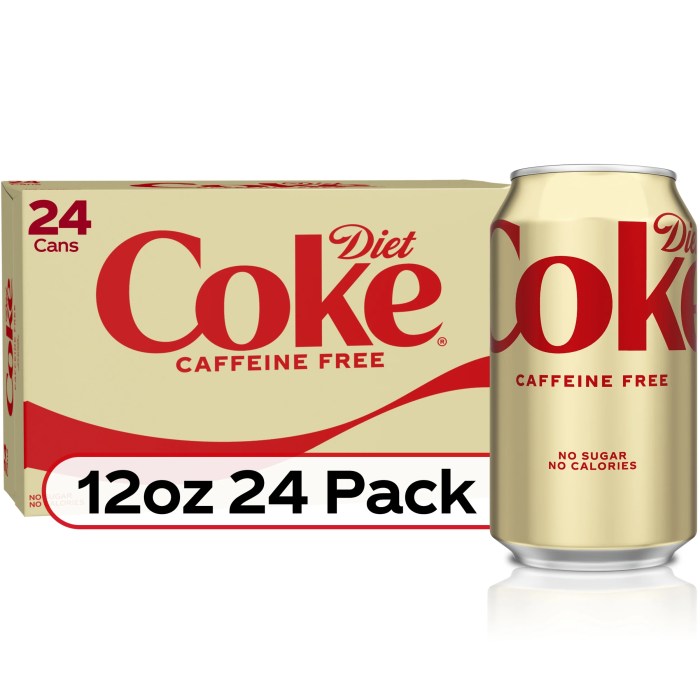
Ultimately, the decision to consume Diet Coke or explore caffeine-free alternatives rests on individual preferences and health considerations. Understanding the caffeine content, potential health impacts, and available alternatives empowers consumers to make informed choices about their beverage consumption. Whether seeking a caffeine kick or a caffeine-free refreshment, the market offers a diverse range of options to satisfy individual needs and preferences.
FAQ Overview
Is Diet Coke healthier than regular Coke?
Diet Coke is lower in calories and sugar compared to regular Coke. However, both contain caffeine and artificial sweeteners, which can have potential health implications.
Does Diet Coke affect sleep?
Caffeine can interfere with sleep, so consuming Diet Coke before bed may disrupt sleep patterns. It’s advisable to avoid caffeine intake close to bedtime.
What are some good caffeine-free soda alternatives?
Popular caffeine-free soda alternatives include Sprite, Schweppes, and ginger ale. These beverages offer a refreshing and flavorful experience without the caffeine content.
While Diet Coke is a popular choice for those looking to cut back on sugar, it’s important to remember that it’s not caffeine-free. If you’re following the keto diet, you might be wondering can you drink diet soda on keto , as it’s generally low in carbs.
However, the caffeine content in Diet Coke might affect your keto goals, so it’s best to consult with a healthcare professional or a registered dietitian to determine if it’s a suitable beverage for your specific needs. Ultimately, the decision of whether or not to include Diet Coke in your diet comes down to your individual preferences and dietary goals.
While Diet Coke is indeed caffeine-free, it’s important to remember that it’s still a processed beverage and doesn’t offer much nutritional value. To ensure you’re getting the nutrients your body needs, consider focusing on a balanced diet rich in fruits, vegetables, and whole grains.
For tips on how to increase your fiber intake, check out this helpful guide: how to get more fibre in your diet. This will help you feel fuller for longer and support your overall health, which is just as important as staying hydrated with your favorite beverage.
Diet Coke is not caffeine-free, but it does contain less sugar than regular Coke. If you’re trying to cut back on sugar, it’s important to focus on a what is good diet that’s balanced and nutritious. However, remember that caffeine can still affect your sleep and energy levels, so it’s best to be mindful of your intake even with diet soda.















